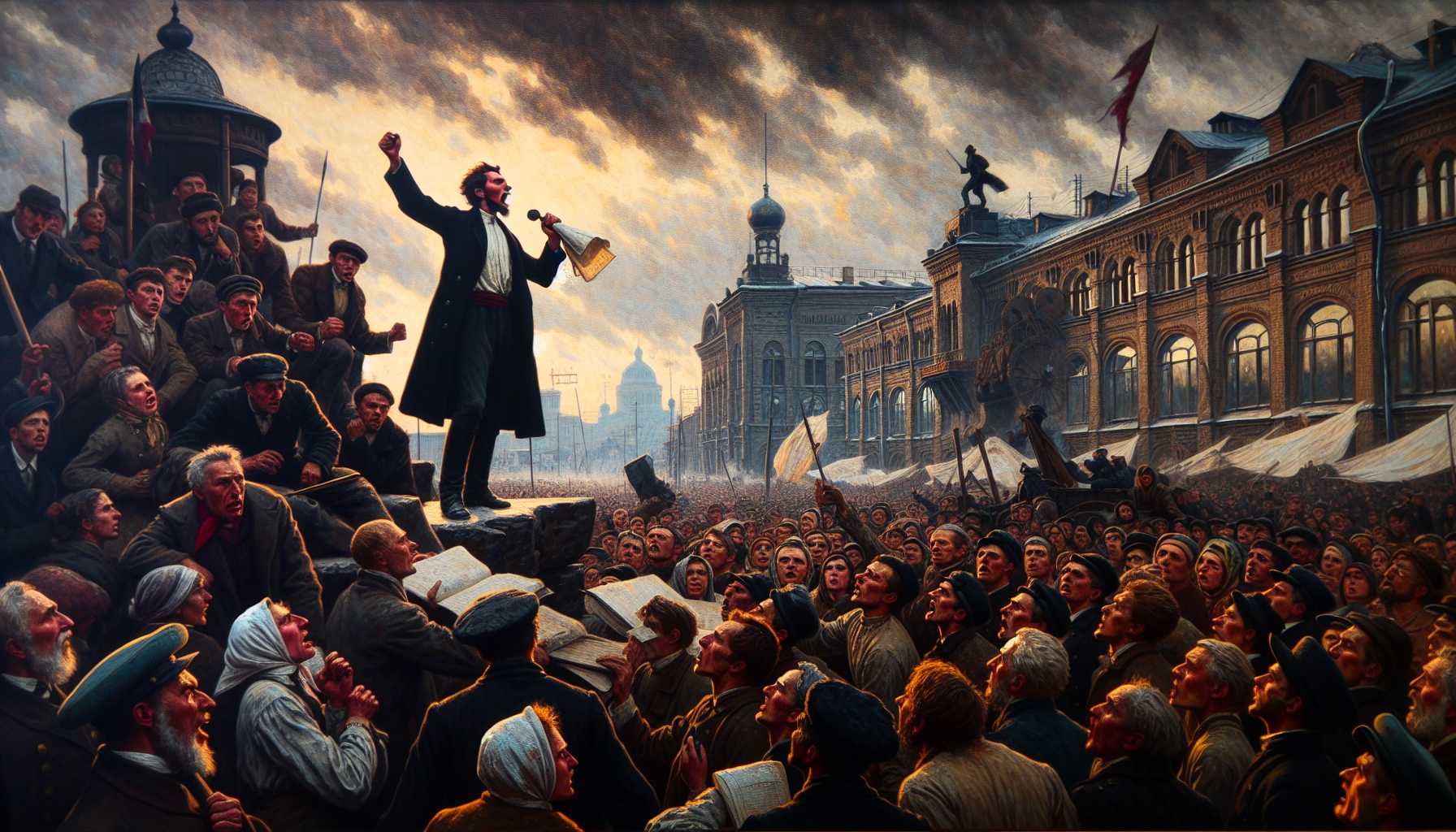
Vladimir Lenin Impact on 20th Century History and Communism
Vladimir Lenin was a pivotal figure in 20th-century history, best known for being the leader of the Bolshevik Party and the architect of the Soviet Union.
Vladimir Lenin è stata una figura cruciale nella storia del ventesimo secolo, conosciuto soprattutto per essere il leader del Partito Bolscevico e l'architetto dell'Unione Sovietica.
Born in 1870 in Russia, he became involved in revolutionary politics in the early 1900s, advocating for Marxist principles and the overthrow of the Tsarist autocracy.
Nato nel 1870 in Russia, si coinvolse nella politica rivoluzionaria nei primi anni '900, sostenendo i principi marxisti e la caduta dell'autocrazia zarista.
Lenin's revolutionary fervor led to the 1917 October Revolution, which resulted in the Bolsheviks seizing power and establishing a communist government.
Il fervore rivoluzionario di Lenin portò alla Rivoluzione d'Ottobre del 1917, che portò i bolscevichi a prendere il potere e a stabilire un governo comunista.
Lenin implemented significant reforms and policies aimed at restructuring Russian society and economy.
Lenin attuò riforme e politiche significative volte a ristrutturare la società e l'economia russa.
His leadership during the Russian Civil War (1917-1922) solidified his power but also resulted in widespread violence and hardship.
La sua leadership durante la Guerra Civile russa (1917-1922) consolidò il suo potere ma portò anche a violenze e difficoltà diffuse.
He introduced the New Economic Policy (NEP) in 1921, allowing limited private enterprise to stimulate the economy after the devastation of the civil war, while still maintaining state control over major industries.
Introdusse la Nuova Politica Economica (NEP) nel 1921, consentendo un'impresa privata limitata per stimolare l'economia dopo la devastazione della guerra civile, mantenendo comunque il controllo statale su industrie chiave.
After his death in 1924, Lenin's legacy continued to influence global politics, with the Soviet Union emerging as a superpower.
Dopo la sua morte nel 1924, l'eredità di Lenin continuò a influenzare la politica globale, con l'Unione Sovietica che emerse come superpotenza.
His theories and practices laid the groundwork for future communist movements around the world, although his approach was often subject to criticism for its authoritarian tendencies.
Le sue teorie e pratiche posero le basi per i futuri movimenti comunisti in tutto il mondo, sebbene il suo approccio fosse spesso soggetto a critiche per le sue tendenze autoritarie.
Lenin remains a controversial figure, symbolizing both revolutionary change and the complexities of totalitarian regimes.
Lenin rimane una figura controversa, che simboleggia sia il cambiamento rivoluzionario che le complessità dei regimi totalitari.
Based on this article
